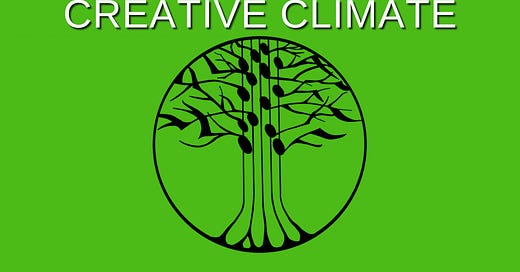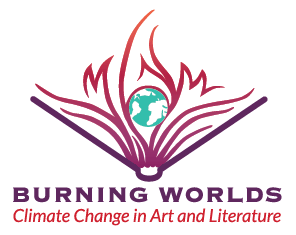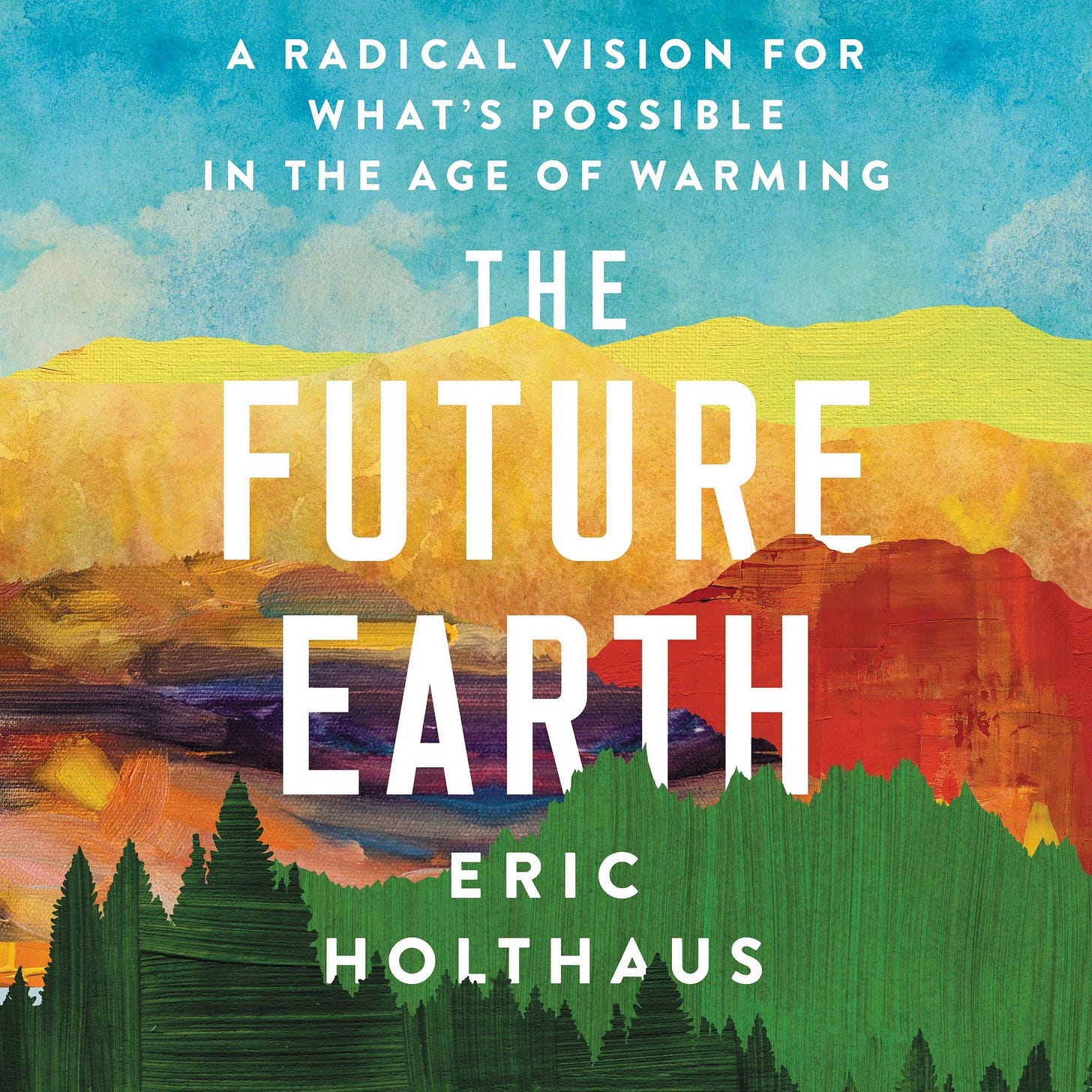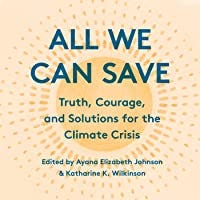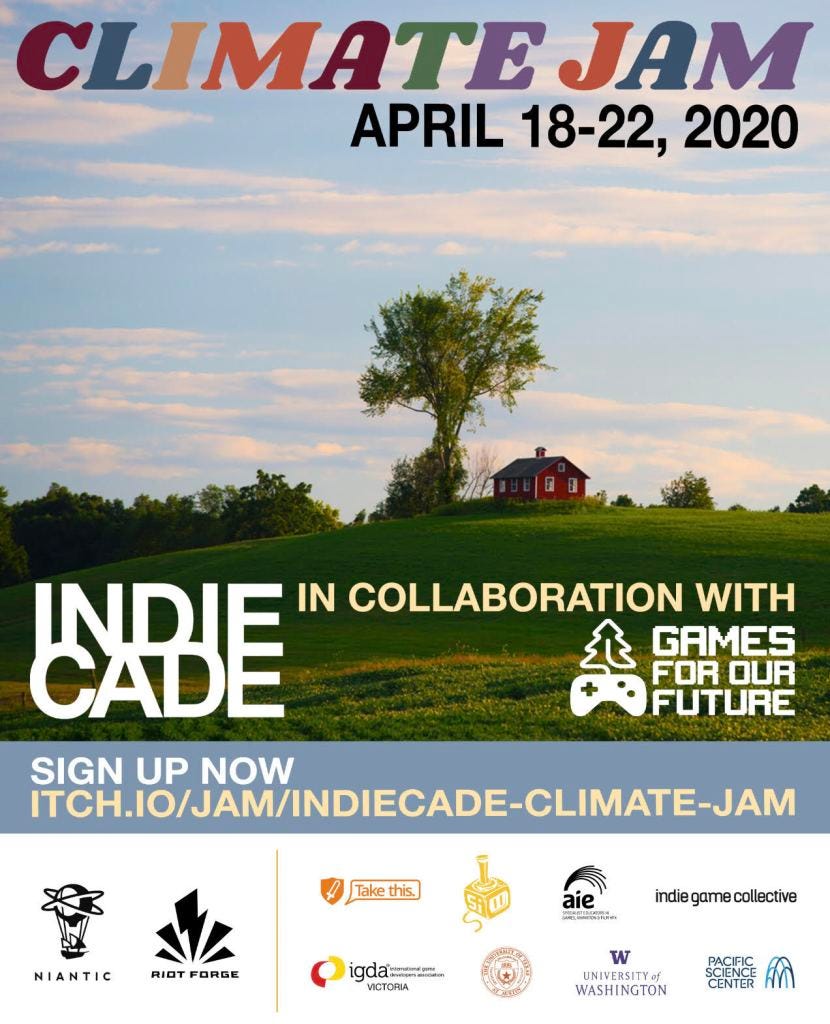Welcome to the first issue of Creative Climate!
Creative Climate is a weekly newsletter about climate fiction and creative responses to the climate crisis. We’ll start each issue with stories and links about climate fiction. Next, we’ll explore climate themes in other creative spaces: television, film, music, art, and beyond. Once per month, paying subscribers will also receive a new climate-themed short story and poem.
This week, we’ll be talking about climate fiction, creative climate nonfiction, climate poetry, and climate games.
Subscribe today so you don’t miss out on all of this exciting climate content. With that said, let’s explore this week’s climate fiction news.
Climate Fiction
So many authors are writing fiction with climate themes now! When I started reading and writing climate fiction about a decade ago, there were only a few visionaries like Octavia Butler devoting significant attention to the theme. Now, as the climate crisis intensifies, more authors are exploring climate themes in new and exciting ways.
Burning Worlds
Burning Worlds is Dr. Amy Brady’s monthly column dedicated to examining how contemporary literature interrogates issues of climate change, in partnership with Yale Climate Connections. If you’re interested in learning more about climate themes in contemporary literature, this column is a great place to start.
Dr. Brady also publishes a monthly newsletter called Burning Worlds - Climate Change in Art and Literature. The newsletter expands on the themes explored in the column, featuring interviews with authors and artists as well as links to stories about climate themes in art and literature.
The Future Earth
The Future Earth by climate advocate and journalist Eric Holthaus offers a radical vision for what’s possible in the age of warming. This groundbreaking book draws on the work of climatologists, economists, futurists, activists, and others to tell a fictional story about how people successfully came together to respond to the climate crisis between now and 2050.
In an unconventional move, the author combines creative nonfiction and fiction in a single volume. The book starts with an overview of the climate crisis, which the author refers to as a “living emergency.” It moves on to tell the decade-by-decade tale of how radical movements for climate action and climate justice successfully created a carbon-neutral world by 2050.
The result is a fictional narrative that is strongly rooted in the facts of the here and now, yet also tells a rich and compelling tale of what the climate movement could accomplish in the coming months and years. The epilogue includes advice and exercises focused on how to process this fictional future narrative and incorporate a vision of radical systemic change and personal change into your real-life actions in the here and now.
Everything Change
Everything Change is a recurring climate fiction contest organized by the Imagination and Climate Futures Initiative at ASU. So far, they’ve held three contests and produced two free digital short story anthologies [Everything Change Volume I & Volume II] featuring the winning entries from the contests. The third anthology is set to be published in early 2021.
Short story anthologies are a great way to explore a broad range of writing styles and tones that are all bound together by a common theme. This is especially true with anthologies like Everything Change that featuring multiple authors. I thoroughly enjoyed both of the anthologies they've produced so far and look forward to reading the third one soon.
More Climate Fiction
Creative Climate Nonfiction
Creative nonfiction is a genre of writing that uses literary styles and techniques to create factually accurate narratives. By using such techniques to tell an engaging story, creative nonfiction can often have a deeper and more lasting impact on the reader than a dry academic or journalistic text.
Climate fiction and creative climate nonfiction serve complementary and at times overlapping roles in climate communication. Both forms of writing craft compelling narratives that inspire the reader to reflect on climate themes.
All We Can Save
All We Can Save is a creative climate nonfiction anthology featuring provocative and illuminating essays from women at the forefront of the climate movement who are harnessing truth, courage, and solutions to lead humanity forward.
I was already familiar with many of the authors in this anthology. Publishing all of their perspectives together in a single volume is a great way to bring their many insights on climate solutions and climate justice to a broader audience. They're not exaggerating when they describe this book (and the people who inspired it!) as part of a feminist renaissance in the climate movement.
The anthology has also led to a new project. The All We Can Save Project aims to accelerate the success of the climate movement by providing focused support and community building for women climate leaders. If you feel inspired by the essays contained within the anthology, this project offers an opportunity for you to support women climate leaders in a variety of ways.
More Creative Climate Nonfiction
Mary Heglar, one of the contributors to the All We Can Save anthology, has written numerous essays about the climate crisis and climate justice. Her essays have consistently provided some of my favorite takes on the subject.
The All We Can Save website has a full listing of all of the participating editors, essayists, and poets. If you like what they provided for the anthology, be sure to check out what they’ve written elsewhere too.
Climate Poetry
Poetry expresses emotions and experiences in ways that are often difficult or impossible in other art forms. This is why I've spent the past decade or so writing climate poetry and reading as much of it as I can get my hands on.
Climate Limericks
Dr. Ayana Elizabeth Johnson, co-editor of All We Can Save, recently held a climate limerick competition on Twitter. This was a fun social media experiment and book giveaway rather than a serious literary poetry project, but that’s part of what I enjoyed about it. I found myself thoroughly entertained and often moved by some of the resulting poetry, especially the winning entries.


Other Climate Poetry
Climate Games
Games are an underappreciated and underutilized space for climate discourse. Their interactive nature draws players in and makes them feel like a part of the story.
I've been playing computer games, video games, and tabletop games since I was a small child. Eventually, as my concern about the climate crisis increased, I started looking for games with climate themes, both for my own amusement and in the hopes of promoting climate discourse in gaming spaces.
The Game Jam
The 2020 Games for Our Future (GFOF) Game Jam allowed game jammers from across the country and planet to create games focused on the theme of ‘Community, Nature, and Resilience in the Face of Global Crises’, in honor of the 50th anniversary of Earth Day. The event from April 17th – 23rd drew over 150 game jammers who submitted a total of 49 diverse games, all centered around pressing environmental issues, in just 5 short days.
You can browse and play all of the submissions for free at the IndieCadie Climate Jam submissions site. I’ve only played a few so far, but my current favorite is The Climate Trail 2.1b. It’s essentially an updated climate-themed tribute to Oregon Trail. Contest winners included games called Fire Season, Local Goods, Happy Ecosystems, and Oil Eco Factory Tycoon.
Cranky Uncle
Cranky Uncle is a game app about a cranky uncle who is always spouting off climate denial talking points. The game uses cartoons and critical thinking to fight misinformation. It was developed by George Mason University scientist John Cook (of Skeptical Science fame), in collaboration with creative agency Autonomy. It’s available on both the App Store and Google Play.
This game is a great example of the innoculation approach to fighting misinformation. Players are exposed to “weakened doses” of misinformation in a gamified context that rewards them for recognizing and rejecting said information. It’s fun, it’s informative, and it may actually help people who are susceptible to logical fallacies and misinformation related to climate change and other issues.
Coming Next Week
Thank you for reading Creative Climate! Here’s a sneak peek at a few topics we’ll be exploring next week.
More Climate Fiction Anthologies
Climate TV & Film
Climate Podcasts
And Beyond!
If you haven’t subscribed yet, subscribe now so you won’t miss out. Be sure to tell your friends too!
About Creative Climate
Creative Climate is a newsletter created by me, Treesong. I’m a father, husband, author, talk radio host, and Real-Life Superhero living in Southern Illinois, USA. I’ve spent most of the past twenty years or so looking for creative ways to advocate for environmental justice and climate justice. You can learn more about my writing and superhero adventures on my website, treesong.org.
If you like Creative Climate, please tell your friends! I have no advertising budget for this newsletter, so people only hear about it through word of mouth. The more subscribers we get, the better the newsletter will be, especially in terms of discussion among subscribers and bonus content for paid subscribers.
If you have ideas for future issues, let me know! Email me at creativeclimate@treesong.org with your suggestions. In the meantime, thanks for reading Creative Climate!

